Pictures: Taoiseach describes Michael Collins as 'inspiring symbol of how much we can achieve'
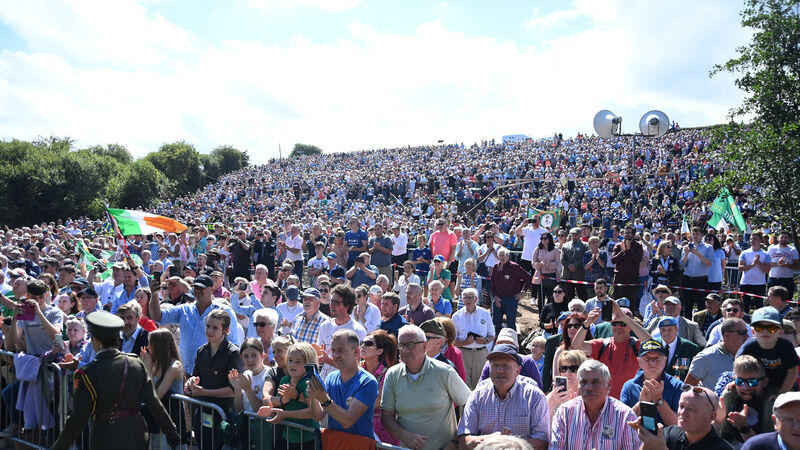
Crowds at the commemoration of the centenary of the death of Michael Collins at Béal na Bláth. Pictures: Larry Cummins
Taoiseach Micheál Martin has described Michael Collins as 'an inspiring symbol of how much we can achieve in the face of even the most terrible odds'.
Speaking to the thousands who have gathered at Béal na Bláth today to honour the death of the revolutionary leader, Mr Martin said it was an honour to be there to pay tribute to Collins.
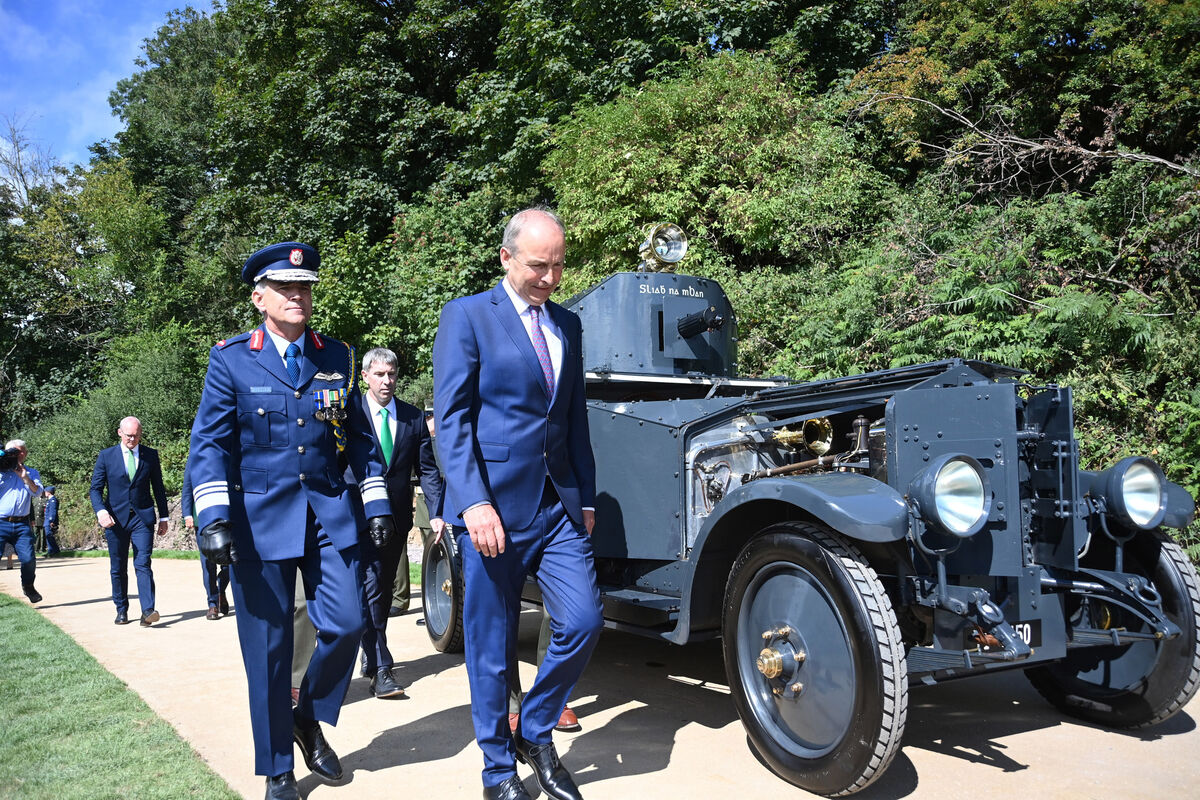
"It is my honour and privilege to be here as Taoiseach and as leader of Fianna Fáil to join you in paying tribute to Michael Collins," he said. "I am proud that my Department has played a leading role in redeveloping this memorial and making it secure and accessible so that generations to come can continue to visit here to pay their respects."
He said Collins's legacy still resonates in 2022.
"He is today, as much as he has ever been, an inspiring symbol of how much we can achieve in the face of even the most terrible odds," Mr Martin said. "In his short 31 years he rose from a modest West Cork home to become a leader in a struggle for independence – a struggle which is responsible for what is today one of the longest continuous democracies in the world.
"Everything he achieved in his life came from his great abilities and recognition of his leadership by his peers.
"While we all know the outlines of his story and his impact, we should do far more to understand and recognise the brilliance of his service to his country."
The Tánaiste said history has been made at the centenary commemoration of the death of Irish revolutionary Michael Collins, as the leaders of Fianna Fáil and Fine Gael made a joint address.
Thousands of people are at the ceremony, taking place in Mr Collins’s native West Cork.
Fianna Fáil leader Micheál Martin is the first party leader to speak at a commemoration for Mr Collins.
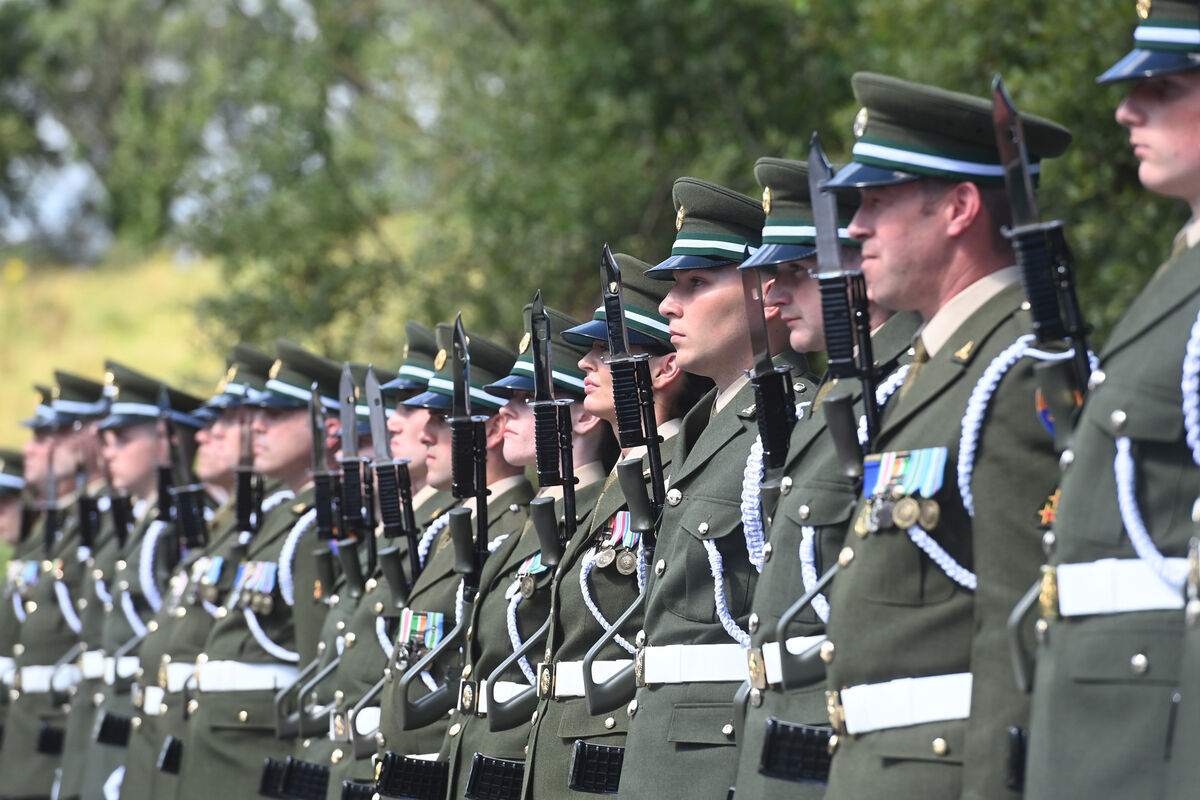
The two parties were founded from opposing sides of Ireland’s civil war of the 1920s, a split that has continued to be part of Irish politics for the last 100 years.
Mr Collins was shot and killed during an ambush by anti-Treaty forces on August 22, 1922 near Béal na Bláth in Co Cork during the civil war. The identity of the shooter remains a mystery.
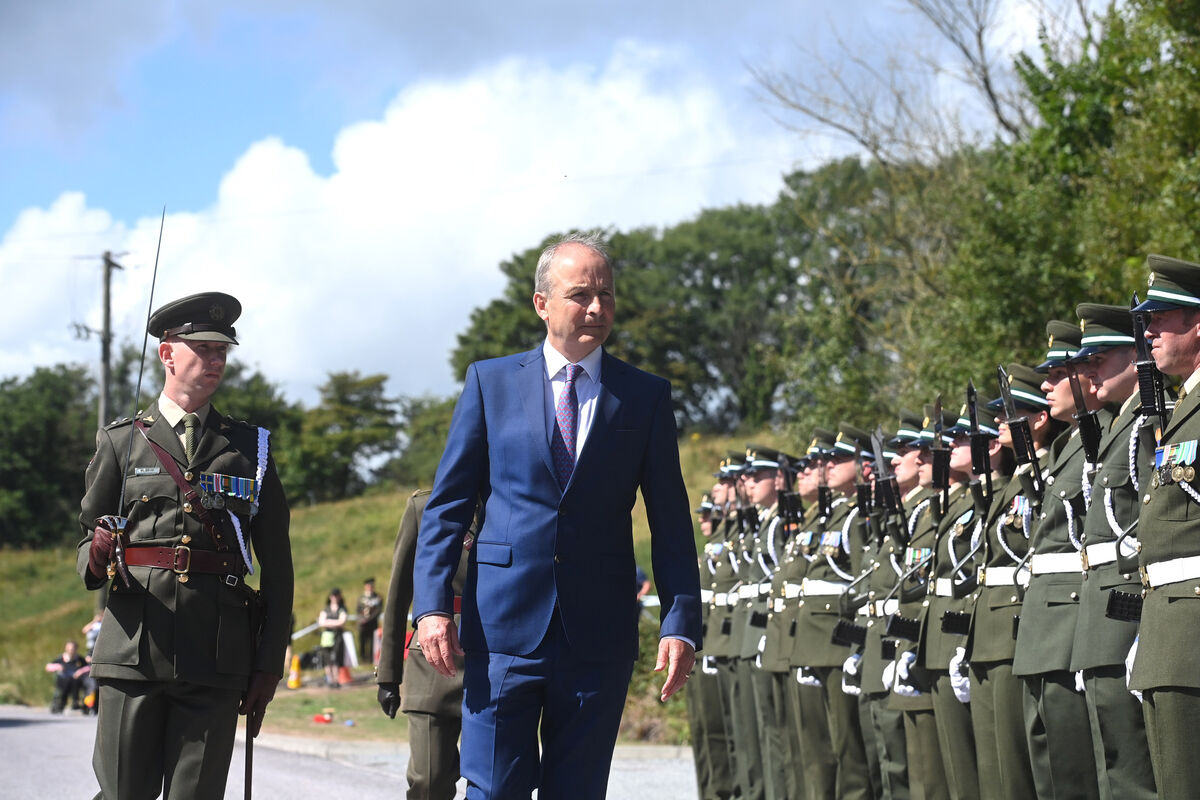
Leo Varadkar said the political parties were divided by “mutual antagonism”.
He added: “Civil wars, by their very nature, leave a bitterness which can take a very long time to heal, whether in Ireland, Spain, the United States or Greece.
“Undoubtedly, the Irish civil war was such a conflict and left a painful legacy which stunted our development in the years that followed.
“Allow me to thank the Taoiseach for accepting today’s invitation, and for the leadership and dedication he has shown over the past two years, and also for keeping a portrait of Cork’s greatest son on the wall of his office.”
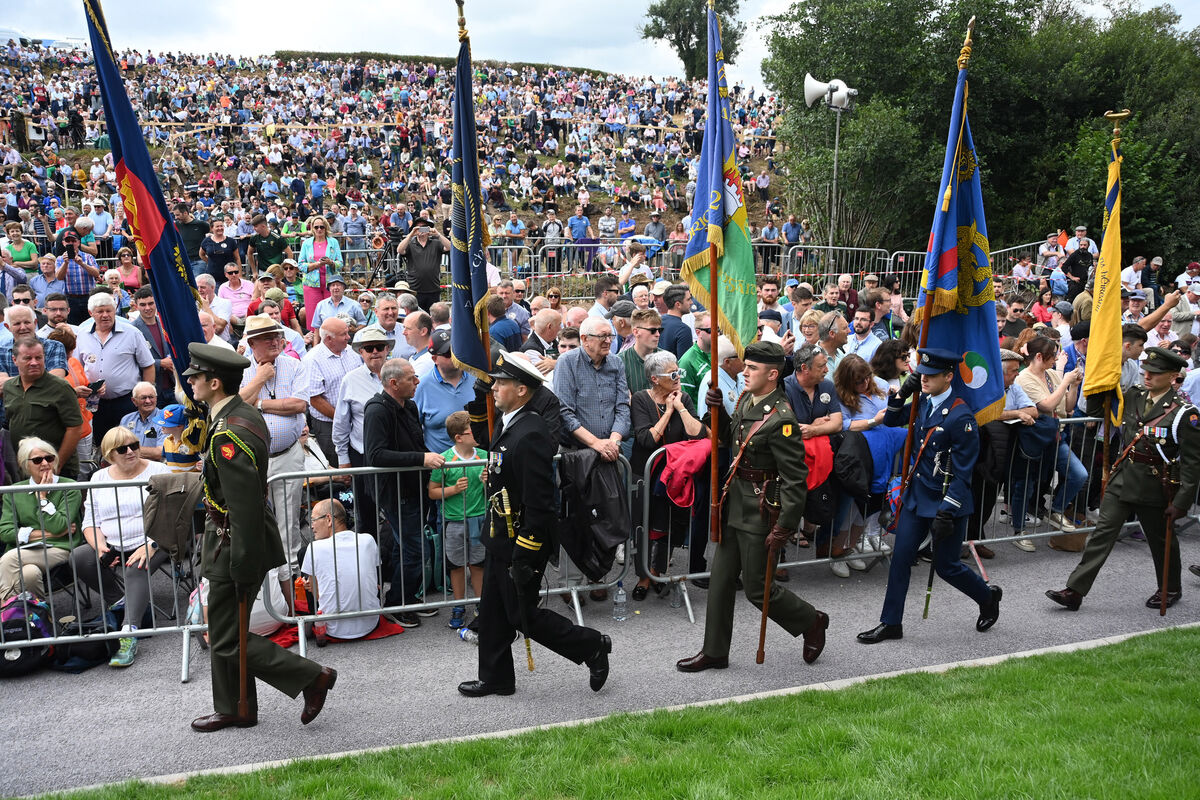
Paying tribute to Mr Collins, the Tánaiste described him as the “great prophet of freedom” who was killed before we reached the promised land.
“That was the great tragedy of Béal na Bláth, and the curse of the civil war,” he added.
“By commemorating his death each year, we remember his sacrifice and make an act of faith in the Ireland he and the revolutionary generation wanted to achieve.
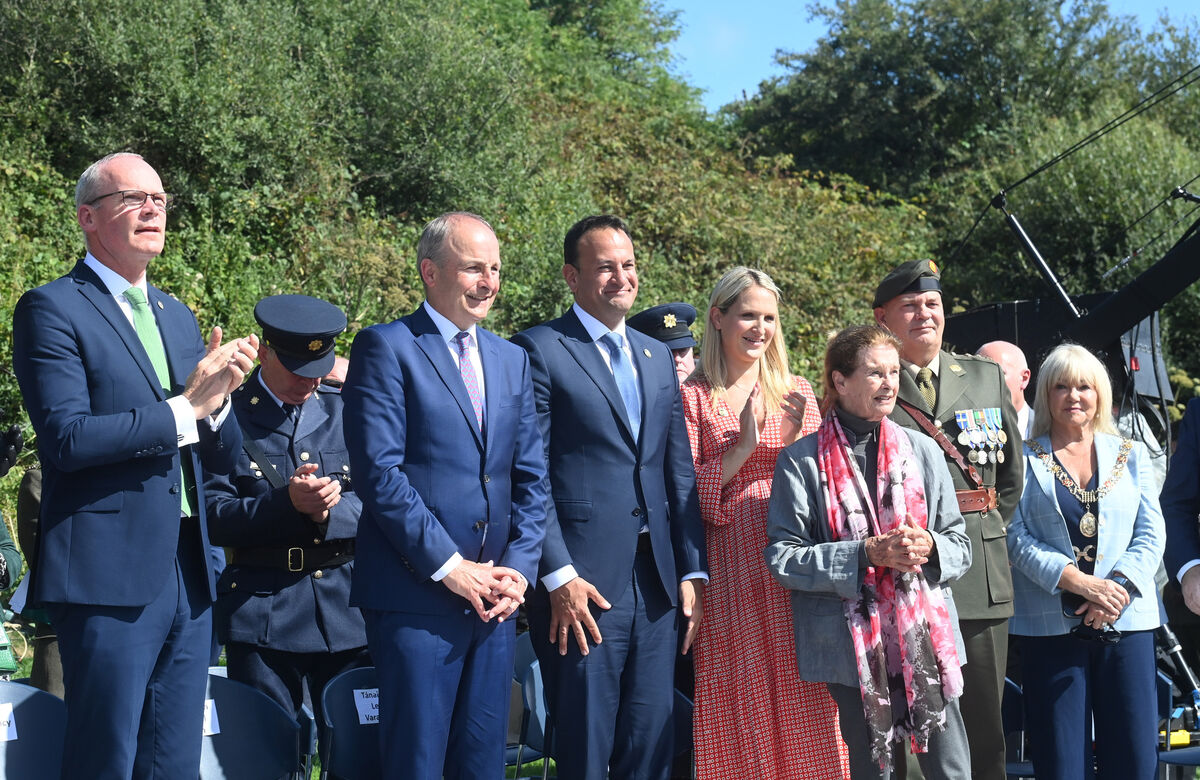
“This event is therefore an opportunity to remember his life, reflect on what has been achieved, and where we have fallen short, and renew our determination to do better.
“He was both an idealist and a realist. And as he predicted, the Treaty gave us freedom and the freedom to achieve more freedom in the future.
“Others fought on for decades, only to accept Collins’s approach almost 100 years later.
“He had the courage to make peace and accept that, in doing so, he could not take everyone with him. It cost him his life, but his legacy and mission live on.”
Descendants of Mr Collins travelled from across the world to attend Sunday’s event on the eve of the centenary of his death.
They joined the thousands of people who travelled from across Ireland to gather at the ambush site, where the Michael Collins Memorial Cross is situated.







 App?
App?


